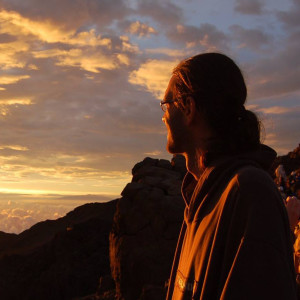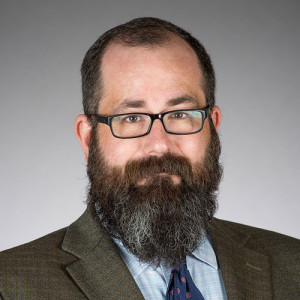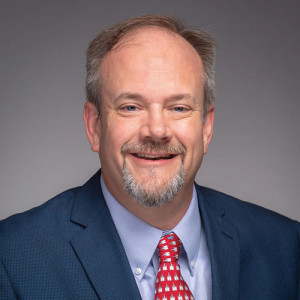Episodes

Thursday May 16, 2019
School vs. Life
Thursday May 16, 2019
Thursday May 16, 2019

Monday May 06, 2019
Episode 058 – Let’s Act Like We’re on the Winning Side (Since We Are)
Monday May 06, 2019
Monday May 06, 2019
This ended up being an emergency episode Paul recorded solo, since Zencastr ate all but a few minutes at the beginning of each recording. There seem to be serious problems with Zencastr since Paul’s MacBook died and he had to resurrect his Windows laptop.
The Big Bang; cosmology seems to require a beginning, uncaused cause
Problems of mind; intellect / qualia, possibility of free will.
There is no materialist explanation of human intellect, only assertions of dogma and crude shufflings of the feet.
Ongoing occurrence of miracles, Lourdes medical board, Fatima, Shroud of Turin; Bob Schuchts
There are far too many miracles and supernatural phenomena that defy materialist explanation: Eucharistic miracles, healings at Lourdes and elsewhere, Fatima, demonic possession…
The testimony of the first Christian disciples requires absolutely crazy explanations that themselves defy our best science even if we reject the idea that Jesus rose from the dead.
The continuing existence and expansion of the Church in the face of persecution is likewise historically unparalleled, save only for the continued existence of Judaism.
Second of all, it provides perspective and healing for human problems that nothing else does.
John Warner Wallace from Breakpoint podcast; LAPD homicide officer
What has God done in my life... we GET to that, we don't start there like Mormons
Christianity provides a shockingly direct answer to the question of evil: the transcendent, all-good God is Himself willing to experience it.
The Christian faith continues to spread in Africa and Asia in the face of continued persecution, whether of the violent or of the brainwashing variety. Why is that?
The attempts of Western society to escape Christianity have made us amazingly miserable amid all our material possessions and security. Why do we so halfheartedly turn away from these distractions?
The most characteristic failing of our age, I would argue, is addiction, and addiction has evoked a powerful response in the form of the Twelve Steps. Although these Steps are deliberately offered to everyone with no attempt made to proselytize them to any specific religion—indeed many recovering addicts refuse to identify themselves as religious—nevertheless, the principles of the Steps are completely and suspiciously consistent with Catholic Christianity.
The Catholic intellectual tradition has a tremendously formidable intellectual structure, the most robust philosophical realism, an enormous storehouse of moral philosophy and psychological insight, and a wealth of stories of human drama in the lives of both saints and sinners.
Why do we slave along as intellectual second or third-class citizens in the modern world? I was just looking at the want ads of literary agents and realized that they are all blithely “progressive” members of the stumbling, bumbling cultural vanguard. Our culture is shaped by stories forged out of this nihilistic experience of forgetting an entire civilization’s worth of wisdom.
We are looking to help out at the Society of Catholic Scientists Conference this year, and are in talks about how we can do that. We’re really excited about working to create a greater sense of community among Catholic scientists!

Thursday May 02, 2019
Setting Myself Up To Fail
Thursday May 02, 2019
Thursday May 02, 2019
I am scrambling this week to make preparations for TSSM to help cover the Society of Catholic Scientists Conference coming up June 7-9 at Notre Dame. I will just post a few thoughts.
I recall reading CS Lewis' autobiography many years ago and hating myself for not reading anywhere near as many good books as he did when he was young... hating myself because I knew that while I was probably more or less just as intelligent as he was, I could not force myself to spend my time well.
If you listen to the TSSM podcast much at all, you realize that Bill lets me talk for long whiles. I haven't exactly read nothing, and I haven't exactly thought nothing, but I oscillate between suspecting I have something valuable to say and fearing that I'm being judged for my ignorance. Ironically, when we hired a professional to evaluate our podcast strategy (Paired, Inc, good people to talk to if you're in the Indianapolis area), their first comment was that the content was too complex and abstruse for the average listener. To which I internally respond, "Perhaps I'm just good at sounding as if I know anything about what I'm saying."
It would be called "impostor syndrome" if it were false, but I dunno if it's false.
Anyway, I take this two directions. One is to note the language that I used above: "I could not force myself to spend my time well." A therapist years back gave me a list of common thinking problems, one of which has stuck with me: "We think we can horsewhip ourselves into compliance." Yes. Yes, that's me. My father for years had this note pinned to a bulletin board: "The floggings will continue until morale improves." One of those Freudian slip, joking-not-joking sort of things. I learned the lesson well. No wonder I found ways to drug myself up with compulsive behaviors and dissociate with computer games or compulsive non-CS-Lewis-caliber reading on or off the internet, and things have only started to change since that priest in Chicago (may he be blessed in eternity) referred me to my first Twelve Step group. I was and continue to need the help of a Power greater than myself to get out of this trap.
The other direction is that I have come to think that podcasts are not a platform for expounding new ideas, however informally. They serve a really valuable purpose for me in that my stable of podcast subscriptions keeps reminding me of things that have tended to swim away from me in the past: I'm better off being Christian and Catholic than not. I have a future, and there are steps I can take to get there. I subscribe to a handful of podcasts that keep me at least a little bit conversant with what the progressive establishment is debating within itself. These podcasts also give me a loose connection to familiar voices, a step toward community (although definitely not by itself the real thing).
Realizing this, and having the chance to ponder the SCS' mission over the past few weeks, I have come to think that perhaps the most valuable thing we can do with this podcast is also to seek to enhance a sense of community among Catholic and Christian scientists. What we've been doing serves this purpose to a considerable extent, but it will provide us a valuable sense of focus going forward.

Monday Apr 22, 2019
Monday Apr 22, 2019
Today we present the second half of the interview with Darcia Narvaez, social scientist at Notre Dame and a specialist in childhood inculturation, attachment, and bonding issues.
We start out this half of the interview with a discussion of what Karl Polyani called the "great transformation" of European society, involving the breakdown of the pre-modern order and its safeguards for a stable population by means of understandings about community use of land, perhaps resulting in the popularity of emigration to the New World by dispirited, dispossessed, and to some extent dangerous people.
Several times Darcia disparages "hierarchy," understood in its general sense of social stratification, which she or other who have influenced her theorize to have caused huge social catastrophes, including the corruption of the Christian Church by its integration into the late Roman state and the collapse of populations and cultures in the New World on contact with the colonizers from Europe. Late in the podcast I ask her explicitly whether there is any benefit to civilization... let us know in the comments on Facebook or Podbean what you think about the answer!
Darcia's claim is that humans are by nature more egalitarian than other animals. This goes right down to childrearing, where human children, born so completely needy, have an innate expectation that their requests for assistance will be met. She comments that there is a Native American word, "wetiko," that was used to describe an attitude thought of as akin to a sickness that characterized those who acted in an aggressive and exploitative way toward others. Whether or not premodern peoples were all more free of this, it's certainly a common feature of civilized peoples. The Old and New Testaments certainly testify to this, and the need to confront it with compassion and an egalitarian attitude. We discussed the specific example of the disease of the large organization, society, business, or government, in which those at the top are simply disconnected, both intellectually and morally, from those at the bottom.
We mentioned subsidiarity, and might have mentioned clericalism... the social science of these concepts will hopefully be fodder for future podcasts.

Monday Apr 15, 2019
Episode 055 - Darcia Narvaez on socialization and isolation
Monday Apr 15, 2019
Monday Apr 15, 2019
Find Darcia's writings and resources across the internet:
Resource Page at Psychology Today
Topics we discussed in this podcast:
The human need for socialization from the very beginning, and ways that goes awry in contemporary society.
Things we can do to learn some of these lessons later in life:
- Self-calming via breathing, meditation, prayer. (Does our contemporary culture of outrage stem from a lack of the ability to calm ourselves that we are meant to learn starting in infancy?)
- Build a social network. We were meant to have interaction with an extended family that spans all age ranges for proper socialization. It's not too late to play with children, talk to the elderly, interact with people at other stages of life.
- Learn new languages and interact with people in different cultures. What are their reasons for doing the things that they do?
- Spend time with nature.
- Practice going outside yourself, defusing rigid thinking and attachment to "it has to be done this way." Intelligence is a measure of flexibility as much as anything.
Bill asked about social media and our tendency to seek out those who already agree with us. Darcia noted that we need guidance on how to socialize. Up through age 30 or so, it's natural for human beings to get that kind of guidance from others. Unfortunately we get that guidance through TV and video games now.
As usual, this was the first half of our interview. More discussion and more questions than we could possibly answer next time!

Sunday Mar 31, 2019
Sunday Mar 31, 2019
0:00 - The question of relativism vs. hyperrationalism
1:00 - God's love is not a "fact" but, say, hominid ancestry is
1:30 - Tapping into the belief in the rationality of science to bring back belief in reality in faith
2:30 - "Kicking in the back door of relativism"
4:00 - Linkages between theology, philosophy, and science: e.g. logical consistency
5:30 - Effects on the rest of schools that participate in the Science & Religion Initiative
6:30 - Encouragment to integrate, say, history, economics with faith as well
7:00 - Congregation for Sacred Doctrine 1977 "The Catholic School"
8:00 - Faith & literature, arts
9:30 - The true limits of dogma; need to understand how limited Catholic dogma really is, and how non-restrictive
13:00 - Teachers woefully overworked and underpaid, not given the ability to succeed
14:30 - Blessed to have excellent but also humble panelists & experts intending to listen to one another
19:00 - Story of the second & first editions of Baglow's textbook

Friday Mar 29, 2019
CNAG: What's Your Frequency?
Friday Mar 29, 2019
Friday Mar 29, 2019
A return to the idea of frequency dovetails with the influence of the images and other sensory inputs we allow into our minds that Patricia Bellm spoke about yesterday. It also converges with the topic of the NPR Invisibilia podcast episode Post, Shoot from earlier this month.
In that episode, the interviewer spoke with African-Americans, mostly high school age, in Wilmington, Delaware. It examined the situations created by their heavy use of social media, playing around with the imagery of gangster culture and engaging in diss wars with each other that remain confined to their social platforms... except when they don't, and someone gets shot.
I'm aware I am barred from speaking about anything going on in African-American culture beyond the barest facts. So I won't. I don't need to, in any case. I can cruise the streets of Milroy, Indiana, a rural community about as white as white can be, and see my young fellow German-Americans and Euromutts dressing themselves as if to try to fit into that style or listening to that music.
Patricia, how did she put it: "If you eat doughnuts, you will look like a doughnut. If you consume violent video games, you will become a violent person." The cautious scientist in me has to note that of course it's not that simple. Human beings are maddeningly complicated to evaluate and manage from the outside. [Reasonably apropos, and too good a quote to pass up: "Communism would be a wonderful system if only there were no people, and communism would be wonderful in Poland in particular if only there were no Poles."] We have a lot of influences, and no one cultural stimulus is going to dominate the outputs of our behavior except for a small minority of people.
Very few of the white kids watching the video for Trap Queen on YouTube are going to go out and cook up some crack or join a gang so as to have a rival gang with members to shoot. Does that mean that it doesn't have any influence? That would be more of that all-or-nothing thinking that helped our foremothers survive in life or death situations, but didn't help all that much in creating the philosophy or science that have allowed us not to be in life or death situations nearly so often. Of course it has some influence, and of course to tell exactly what nature and how much we are stuck with the uncertain means of statistical social science or the cumbersome ones of brain scanning, but we can look at ourselves and those closest to us and get some sense of the situation.
It should be too obvious to need stating, but once we are in the presence of a song or a movie or decide to start reading a book, we can't consciously choose what elements will influence us and leave the others behind. I'm kind of upset at American culture for feeding me enough stimuli, with no conscious cooperation on the part of myself, my parents, or my teachers, to imbibe the whole gospel (malispel?) of the sexual revolution and have it as an unwelcome part of my mental furnishings. I can't entirely shake the sense that burdened me so heavily as a teenager that if only I was doing what everyone else was supposedly doing (getting laid), I would be happy and my life would be worth living. It takes effort to keep it at bay, and used to take enormous effort that crippled me as far as the work of growing up and finding my vocation was concerned. I watch my diet of AC/DC or Crazy Town (remember th... no, of course not, never mind) or country music in general, because it's just not worth it making things harder on myself.
This all also comes back to the question I posed myself about knowingly filling my mind with fiction. If you're watching Scarface snort cocaine and shoot people, you're distancing yourself from reality. (I sure hope. There is help if part of that is your reality.) Add up enough distance, and it starts to make sense to call it dissociation.
How does this relate to "frequency"? I'm going to go out on a limb here with my modest familiarity with the term "frequency" and my considerable experience with dissociation and say:
Theorem. If surrounding oneself with reminders and expectations of good things and affirming the good that has been placed within you is vibrating at a high frequency, while surrounding oneself with mediocrity and telling yourself you're a fraud and barely getting by is vibrating at a low frequency, then losing oneself in fantasy and living apart from reality is not to be vibrating at all... zero frequency.
Just like absolute zero, no living person is all the way down at zero frequency, but some of us are only at a few millikelvin.

Thursday Mar 28, 2019
Bonus Episode - Patricia Bellm: Compartmentalization vs. integration
Thursday Mar 28, 2019
Thursday Mar 28, 2019
Compartmentalization by students at Notre Dame
Bill: ethics as a checklist
The Science & Religion Initiative (see Baglow & Martin interview)
The need to get the same message in the biology class and in theology class
The change in the teachers after a few days in the workshop: divisions fade out
It's a challenge having an "athletics" teacher in the program (phys ed)...
Yet there are things: doping and respect of the body
Patricia believes "you become what you eat" applies to violent video games as well
Feed yourself and your children good things instead

Monday Mar 25, 2019
Monday Mar 25, 2019
0:30 - McGrath Institute for Church Life: Science & Religion Initiative outreach to high school teachers to integrate science & faith
2:00 - Gulf Coast Faith Formation Conference (a good time to be away from Notre Dame)
3:00 - Summer seminars: Foundations Notre Dame, Foundations New Orleans, Capstone
4:00 - Foundations ND: lecture based, top scholars in specific disciplines, with workshops
6:00 - Foundations NO: experimental work and discussions
7:00 - Dialogue between science & theology teachers about their own specialties
8:00 - Capstone: topic-based theme & lecturers; special track for administrators; teaching practices
11:00 - Templeton Foundation study showing schools already trying to do this on their own
12:00 - The need to do this well and not engage in pseudoscience or gloss over tough questions
14:00 - ICL team making "housecalls" to individual schools
14:30 - Baglow textbook on science & faith
18:00 - Vast multiplication of interest from schools just since 2011
19:00 - Real motivations for believing faith is inconsistent with science: the need for hope [and, not made explicit, the appropriateness of hope]
20:00 - "I thought I was the only one"
21:00 - The historical and emotional impulse: rebellion against Christian hypocrisy
22:30 - Baglow makes the Fulton Sheen point: "I also hope THAT God doesn't exist!"
23:00 - The questions he wishes people would ask about God, meaning, science, etc.
24:00 - "What do you mean by 'God creates everything'"
25:00 - The nature of the discourse we encourage
26:30 - "I don't know"
27:00 - "When did science and religion enter into conflict?" - because they have not always been
28:20 - The true role of the university in integrating human wisdom
30:30 - Newman on evolution in the context of Development of Christian Doctrine

Friday Mar 22, 2019
CNAG: Money
Friday Mar 22, 2019
Friday Mar 22, 2019
Money is a fascinating topic to take up in this connection because doing so illuminates some serious, jagged fractures within both of our contemporary political camps of “conservative” and “progressive” thought, and indeed, within our own minds.
“Whatever may be said in praise of poverty, the fact remains that it is not possible to live a really complete or successful life unless one is rich.” – Wallace Wattles
“Hello? How gross is that [quote]?! It offended me to my hippie core, until I understood what it was really saying and that, erm, you kind of can’t —not if you want to fully express yourself, anyway… you have to let a lot go because it will absolutely go up your nose if you’re still working on your issues around it being OK to make money.” – Jen Sincero, talking about that quote and the book containing it
“Money is not the root of all evil!” – Cathy Heller (if not an absolute quote, extremely close)
“Those who want to get rich fall into temptation and a trap and into many foolish and harmful desires that plunge people into ruin and destruction. For the love of money is a root of all kinds of evil. Some people, eager for money, have wandered from the faith and pierced themselves with many griefs. But you, man of God, flee from all this, and pursue righteousness, godliness, faith, love, endurance and gentleness.” – Paul of Tarsus, 1 Tm 6:9-11
“Money, it’s a hit
Don’t give me that do-goody-good bullshit” – Pink Floyd
Money. Wealth. It unites people as diverse in their political thinking and way of life as Oprah, the Koch brothers, George Soros, El Chapo, Vlad Putin… and hatred of it, renunciation of it, or contempt for those who have it (important distinctions, admittedly) unites Francis of Assisi, Karl Marx, Mother Theresa, and as Jen Sincero notes, your general hippie, hipster, and mousy academic type.
People want money. They want various of the things you can exchange money to obtain (food, housing, pretty objects, fast objects, sexual favors…). Unsurprisingly, given that, they want money for the mere fact of having money, or rather, the emotions related to security and power that possessing money provides.
As far as practical advice goes, the right attitude toward money and wealth seems to me to require a lot of work on that nagging issue I identified a while back: we’re either bored with the golden mean, or it’s too complicated for us to think about two things at once.
Of course, to get by in modern society and do much of anything to help people, we need money. On the other hand, we all experience the temptation to spend money irresponsibly. We spend money on things that will not help others even in the indirect (and completely real) sense that we need to help ourselves in order to help others. We spend money on things that are actually destructive: alcohol, strip clubs, access to crappy TV shows that we know are eating up our lives and giving nothing back, Lexus SUVs, a fifth set of power tools. We exalt this money thing to the position of Higher Power and guiding light for our lives, piling up ever more of that security and power far past any point of diminishing returns. We spend time thinking about and managing this money to the exclusion of living a real human life.
Christianity warns us about all of that early and often. What we then seem to have done, here in the West, is bend part of ourselves back too far in the other direction and try to carry on with an unrealistic set of expectations about not being one of those bad rich people, yet wanting all the things that money can buy. If we want to be Mother Theresa, yet also drive Jen Sincero’s Audi, then yeah, we’re going to come into conflict with ourselves.
At this point, of course, the net widens…
CNAG is the Catholic-New Age Glossary… not backed by Webster’s or any other authority. These reflections are written by Paul, and they here on That’s So Second Millennium because they are an attempt to find the points ofharmony between different strands of psychology and spirituality as they are being explored and lived out in Western culture today.

